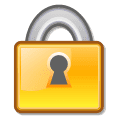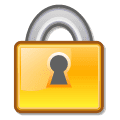 David Pogue of the New York Times offers some tips for secure passwords. Here are some of my favorites from the column.
David Pogue of the New York Times offers some tips for secure passwords. Here are some of my favorites from the column.
- FORGET THE DICTIONARY If your password can be found in a dictionary, you might as well not have one. “
- NEVER USE THE SAME PASSWORD ACROSS MULTIPLE ACCOUNTS If they get one they get them all.
- COME UP WITH A PASSPHRASE Use the first letter or two of each word of a favorite quote.
- JUST JAM ON YOUR KEYBOARD Hit a bunch of random keys and store the result in a safe place.
- STORE YOUR PASSWORDS SECURELY Do not store your passwords in your in-box or on your desktop. If malware infects your computer, you’re toast. Keep your most sensitive information off the Internet completely.
- IGNORE SECURITY QUESTIONS There is a limited set of answers to questions like “What is your favorite color?” and most answers to questions like “What middle school did you attend?” can be found on the Internet. Hackers use that information to reset your password and take control of your account.
- USE DIFFERENT BROWSERS Mr. Grossman makes a point of using different Web browsers for different activities. “Pick one browser for ‘promiscuous’ browsing: online forums, news sites, blogs — anything you don’t consider important,” he said. “When you’re online banking or checking e-mail, fire up a secondary Web browser, then shut it down.”
- SHARE CAUTIOUSLY Use “throwaway” e-mail addresses, like those offered by10minutemail.com. Users register and confirm an online account, which self-destructs 10 minutes later.
“At some point, you will get hacked — it’s only a matter of time,” warned Mr. Grossman. “If that’s unacceptable to you, don’t put it online.”
Visit the article for fuller explanations.

